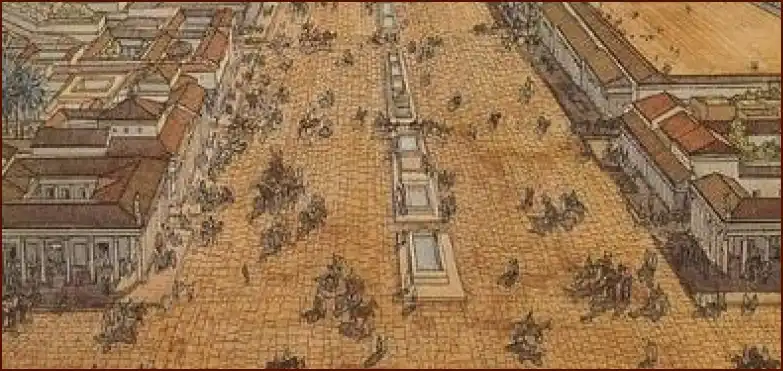Imagine escaping the bustling, scholarly city of Alexandria for a simpler, idealized countryside filled with singing shepherds, lovelorn herdsmen, and the gentle sounds of nature. This is the world created by Theocritus of Syracuse (c. 300–c. 260 BC), the Hellenistic poet credited with inventing the genre of pastoral poetry. His poems, known as *Idylls* (meaning “little scenes” or “little poems”), presented a revolutionary new subject for literature: the lives and loves of rustic folk.
Table of Contents
Discovering Theocritus is to discover the origins of a literary tradition that has endured for centuries, influencing countless poets from Virgil to the English Romantics. His work combines a sophisticated literary artistry with a charming, and often ironic, depiction of rural life, creating a genre that looks simple on the surface but is rich with complexity.
🌿 The Birth of the Bucolic World
While earlier literature had featured rural characters, Theocritus was the first to make their world the central focus of his poetry. His pastoral *Idylls* are set in an idealized landscape, often Sicily or the island of Cos, where herdsmen spend their days tending their flocks, competing in singing contests, and lamenting the pains of unrequited love. This world, though fictional, is brought to life with vivid details of the natural world—shady trees, buzzing bees, and babbling brooks.
The key elements of this new genre include:
- Herdsmen as Poets: The main characters are often shepherds or goatherds who are also gifted singers.
- The Singing Match: A common motif is the amoebean song, where two herdsmen compete in a poetic duel, trading verses in a display of wit and skill.
- Love and Longing: A central theme is erotic passion, often expressed as a painful and all-consuming longing for an absent or indifferent beloved.
- The *Locus Amoenus* (Pleasant Place): The setting is typically an idyllic, peaceful natural spot that provides a refuge from the cares of the world.
🎭 Sophistication in Simplicity
Although the subject of Theocritus’s poetry is rustic, his technique is anything but. As a highly educated Alexandrian poet, he wrote for a sophisticated urban audience that could appreciate his artistry. There is often a subtle irony in his work, playing the apparent simplicity of his characters against the highly refined literary form he uses.
He masterfully blends different dialects and literary styles, creating a unique poetic language. Some of his most famous works, like *Idyll 1*, feature the lament of the dying herdsman Daphnis, a foundational myth for the pastoral tradition. Others, like *Idyll 15*, are urban mimes that humorously depict two Syracusan women navigating the crowded streets of Alexandria for a festival. This variety shows Theocritus’s incredible range and his ability to find poetry in both the country and the city, a hallmark of the Hellenistic creative spirit.
More Topics
- How Philosophy Influenced Hellenistic Writing
- How to Understand the Hellenistic Book Roll
- How to Read Hellenistic Didactic Poetry
- How Literary Rivalry Shaped Hellenistic Poetry
- How to Appreciate Hellenistic Women Poets
- How Scholarship Became Literature in the Hellenistic Era
- How Royal Patronage Shaped Hellenistic Literature

